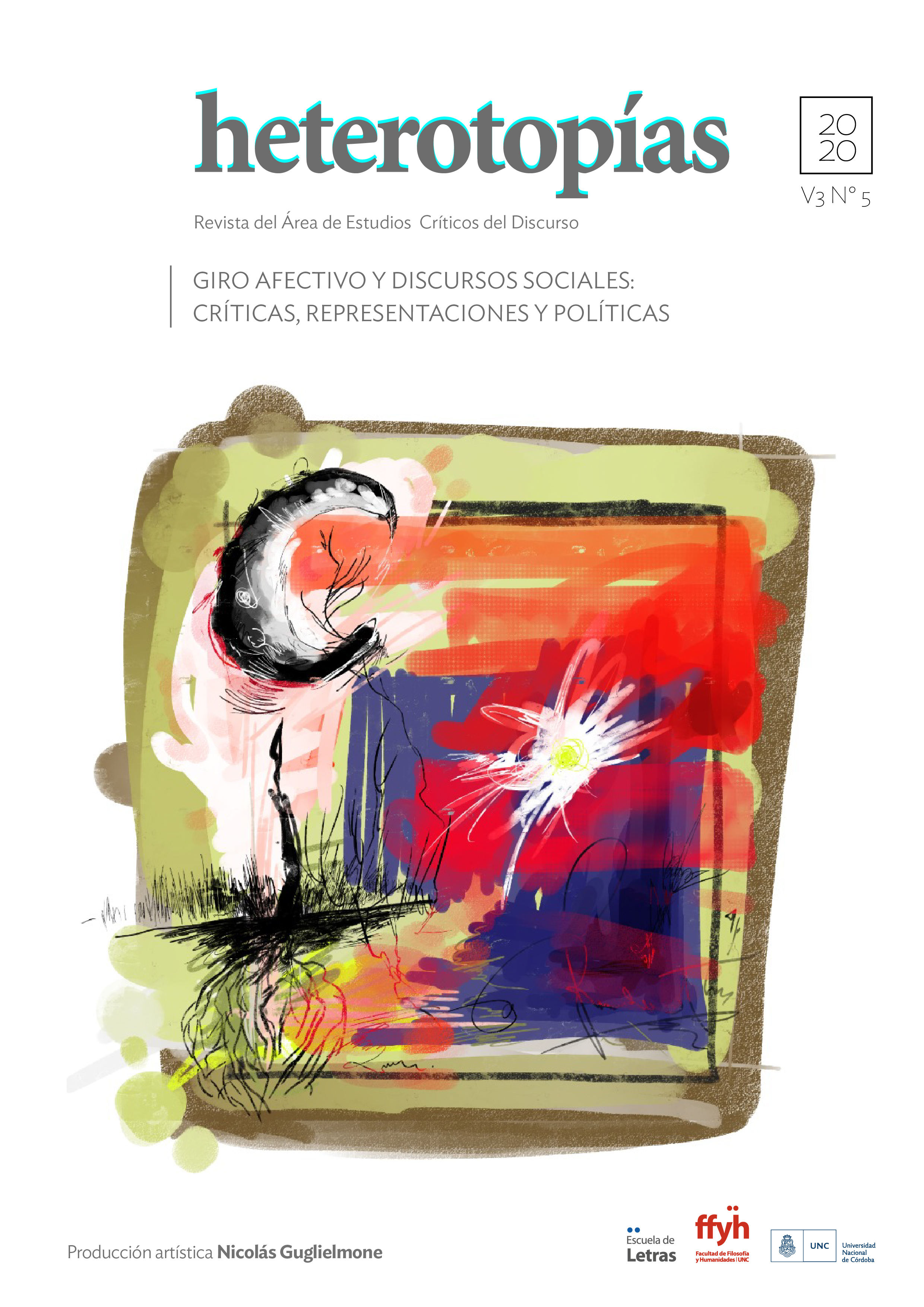Editorial Note
Main Article Content
Abstract
To find a writing tone that does not defecate from the pulse of life, that inhabits the experience of the burst of certainties and tries to make a link with the sense of presence and affections in coexistence subtracted in this hunger for skin; Here is the unthinkable place of this issue of Heterotopias, which managed to bring to public space a transitory effect in its making, in its collective making, by the exceptional tempus of this plague, so dear to literature, in which, as Achille Mbembe says, "in the end, everything returns us to the body" (April, 2020)[1].
1] Achille Mbembe, "The Universal Right to Breathe", article published on 28 April. This text originally appeared in AOC (www.aoc.media) under the title "Le droit universel à la respiration" Translation from French by Diego Roldán.
Downloads
Article Details

This work is licensed under a Creative Commons Attribution-NonCommercial-ShareAlike 4.0 International License.
Those authors who have publications with this journal, accept the following terms: Those authors who have publications with this journal, accept the following terms:
a. The authors will keep their copyright and guarantee to the journal the right of first publication of their work, which will be simultaneously subject to the Creative Commons Attribution - Non-Commercial - Share Alike (by-nc-sa) Attribution License; no commercial use of the original work or any derivative works is allowed, the distribution of which must be done with a license equal to the one that regulates the original work.
b. Authors may adopt other non-exclusive license agreements for the distribution of the published version of the work (e.g., deposit it in an institutional telematic archive or publish it in a monographic volume) provided that the initial publication in this journal is indicated.
c. Authors are allowed and recommended to disseminate their work through the Internet (e.g. in institutional telematic archives or on their website) before and during the submission process, which may lead to interesting exchanges and increase the number of citations of the published work. (See The effect of open access).
